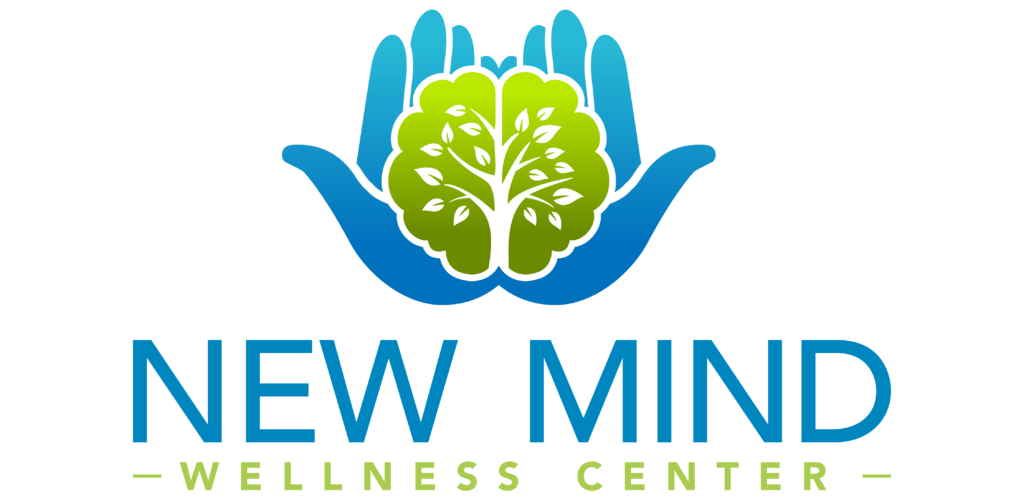Home » Mental Health in College Students – Philadelphia, PA
Mental Health in College Students - Philadelphia, PA

Begin Mental Health Treatment in Philadelphia Today
College students today face an unprecedented combination of academic pressures, financial stress, social challenges, and uncertainty about their future.
Understanding mental health in college students and knowing where to find support is crucial for students, families, and educational institutions working together to promote student wellbeing.
These factors, combined with the developmental changes that occur during late adolescence and early adulthood, create a perfect storm for mental health concerns.
Recognizing the signs, understanding the statistics, and knowing how to access help can make the difference between struggle and success during these formative years.
Learn more about our mental health programs or call us now at 610-772-8120
Mental Health Statistics in College Students
Recent comprehensive studies indicate that mental health concerns among college students have increased dramatically over the past decade.
The combination of academic stress, social pressures, financial burdens, and the ongoing effects of global events has created an environment where mental health challenges are more prevalent than ever before.
Data from national surveys consistently show that a significant majority of college students report experiencing overwhelming anxiety, with many also struggling with depression, eating disorders, and other mental health conditions. These statistics underscore the critical importance of robust mental health support systems on college campuses and accessible resources for students in crisis.
The impact extends beyond individual students, affecting academic performance, retention rates, and overall campus climate.
Institutions that prioritize mental health support see better outcomes across multiple measures of student success, highlighting the interconnected nature of mental wellbeing and educational achievement.
How Many College Students Experience Mental Health Conditions?
The prevalence of mental health conditions among college students is staggering and continues to rise each year. Current research suggests that approximately 85% of college students report feeling overwhelmed by their responsibilities, while over 45% experience more than average stress levels.
Depression affects roughly 44% of college students, with many experiencing symptoms severe enough to impair their academic performance and daily functioning.
Anxiety disorders are even more common, affecting nearly 61% of students surveyed in recent comprehensive studies. These numbers represent real students facing real challenges that require immediate attention and support.
Additionally, suicide ideation affects approximately 11% of college students, with a smaller but significant percentage reporting suicide attempts. These statistics highlight the critical nature of mental health support on college campuses.
Common Mental Health Conditions in College Students
College students face a range of mental health challenges, with certain conditions appearing more frequently in this population due to the unique stresses and developmental stages associated with higher education.
Anxiety Disorders represent the most common mental health concern among college students. Generalized anxiety disorder, social anxiety, panic disorder, and specific phobias can significantly impact a student’s ability to attend classes, participate in social activities, and perform academically. The constant pressure to succeed, combined with uncertainty about the future, creates an environment where anxiety can flourish.
Depression affects a substantial portion of the college population, ranging from mild depressive episodes to major depressive disorder. Students may experience persistent sadness, loss of interest in activities they once enjoyed, changes in sleep and appetite, difficulty concentrating, and feelings of hopelessness. The transition away from home, academic pressures, and social challenges can all contribute to depressive symptoms.
Eating Disorders including anorexia nervosa, bulimia nervosa, and binge eating disorder occur at higher rates in college populations, particularly among women. The stress of college life, body image concerns, and the availability of dining halls and late-night eating options can trigger or exacerbate disordered eating patterns.
Attention Deficit Hyperactivity Disorder (ADHD) may become more apparent in college as students face increased demands for self-regulation, time management, and independent learning. Students who were previously undiagnosed may struggle with the organizational demands of college life.
Sleep Disorders are extremely common among college students, with irregular schedules, academic stress, and social activities contributing to poor sleep hygiene. Chronic sleep deprivation can exacerbate other mental health conditions and impact academic performance.
Causes of Mental Health Disorders in College Students
Understanding the root causes of mental health challenges in college students requires examining the complex interplay of environmental, social, biological, and psychological factors that converge during this critical developmental period.
Academic Pressure
transition from high school to college often involves significantly increased academic demands, competitive environments, and pressure to maintain high grades for future opportunities. Students may struggle with perfectionism, fear of failure, and the constant pressure to outperform peers.
Financial Stress
has become an increasingly significant factor in student mental health. Rising tuition costs, student loan debt, and the need to work while attending school create ongoing financial anxiety. Many students worry about their ability to pay for their education and their financial future after graduation.
Social Challenges
including difficulty making friends, maintaining long-distance relationships, dealing with roommate conflicts, and navigating romantic relationships can significantly impact mental health. The pressure to fit in and find one’s social identity while away from established support systems creates additional stress.
Family Dynamics
continue to influence students even after leaving home. Family expectations, pressure to succeed, changes in family relationships, and homesickness can all contribute to mental health challenges. Students from families with limited college experience may feel additional pressure or lack understanding of the college experience.
Identity Development
during late adolescence and early adulthood can create internal conflict and stress. Students may struggle with questions about their sexual orientation, gender identity, career goals, values, and beliefs as they develop their adult identity away from family influence.
Biological Factors
including genetic predisposition to mental health conditions, hormonal changes, and brain development during this age period can make students more vulnerable to mental health challenges. Many mental health conditions have onset during late adolescence and early adulthood.
Technology and Social Media
use can contribute to mental health challenges through constant comparison with others, cyberbullying, sleep disruption, and decreased face-to-face social interaction. The pressure to maintain an online persona can add additional stress to already overwhelmed students.
Finding Access to Mental Healthcare For College Students
Navigating mental healthcare resources can feel overwhelming for college students already struggling with mental health challenges. However, understanding the available options and how to access them is crucial for getting appropriate support and treatment.
Campus Counseling Centers
Campus Counseling Centers serve as the primary mental health resource for most college students. These centers typically offer individual counseling, group therapy, crisis intervention, and psychiatric services. Most campus counseling services are provided at no additional cost to students beyond their regular fees, making them an accessible first step for students seeking help.
Students should be aware that campus counseling centers may have limitations, including wait times for appointments, session limits, and reduced services during breaks and summer months. However, counselors at these centers are specifically trained to work with college students and understand the unique challenges they face.
Partial Hospitalization Programs (PHP)
Partial Hospitalization Programs (PHP) provide intensive daily treatment typically lasting 6-8 hours per day, 5-7 days per week. Students in PHP receive comprehensive care including individual therapy, group therapy, medication management, and specialized treatments while returning home each evening. This level of care is ideal for students experiencing severe depression, anxiety, or other mental health conditions that significantly impact their daily functioning but don’t require 24-hour supervision. Many PHP programs offer flexible scheduling options that can accommodate class schedules, and some provide educational support to help students maintain their academic progress.
Intensive Outpatient Programs (IOP)
Intensive Outpatient Programs (IOP) offer a step-down level of care that typically involves 3-4 hours of treatment, 3-5 days per week. IOP is an excellent option for students who need structured support but can maintain their regular activities including attending classes, work, and social commitments. These programs often include group therapy, individual counseling, family therapy, and psychoeducation components. IOP can serve as either a primary treatment option for students with moderate mental health concerns or as a transition from higher levels of care like PHP or inpatient treatment.
Emergency Resources
Emergency Resources are essential for students experiencing mental health crises. Campus security, local emergency services, crisis hotlines, and emergency departments provide immediate support for students in acute distress. Students should know how to access these resources and should not hesitate to use them when needed.
Peer Support Programs including peer counseling, support groups, and mental health advocacy organizations can provide valuable support and reduce stigma around mental health issues. These programs offer students the opportunity to connect with others who understand their experiences.
Begin Mental Health Treatment Today
New Mind Wellness is a leader in the provision of mental health treatment in Pennsylvania. If you or a loved one are struggling with mental illness, reach out to us today or verify your insurance now.
Student Resources in Philadelphia
Philadelphia offers a wealth of mental health resources specifically designed to support college students throughout the metropolitan area. The city’s numerous universities and colleges have developed comprehensive support systems that extend beyond campus boundaries.
Temple University Health and Counseling Services
Temple University Health and Counseling Services provides comprehensive mental health support for Temple students through their integrated health and counseling model.
Their services include individual and group counseling, psychiatric care, crisis intervention, and wellness programming.
The center emphasizes accessibility and cultural competency, ensuring that all students can find appropriate support regardless of their background or specific needs. Students can access these services through walk-in hours, scheduled appointments, and emergency consultations.
Montgomery County Community College
Montgomery County Community College School Counselors offer specialized support for community college students who may face unique challenges related to balancing education with work and family responsibilities.
Their counseling services are designed to help students navigate both academic and personal challenges while providing practical support for achieving educational goals. The program recognizes that community college students often have different needs than traditional four-year university students and tailors services accordingly.
Villanova University Counseling Center
Villanova University Counseling Center provides comprehensive mental health services through their dedicated counseling facility.
Their approach emphasizes both individual support and community building, offering various therapeutic modalities to meet diverse student needs. The center provides crisis intervention, ongoing therapy, group counseling, and specialized programs addressing common college concerns such as anxiety, depression, and academic stress.
Ursinus College Wellness Center Mental Health Resources
Ursinus College Wellness Center Mental Health Resources takes a holistic approach to student mental health, integrating counseling services with broader wellness initiatives. Their mental health resources include individual counseling, group therapy, crisis support, and educational programming designed to promote mental health awareness and resilience. The center emphasizes prevention and early intervention while providing comprehensive support for students experiencing mental health challenges.
NAMI Philadelphia
NAMI Philadelphia serves as a crucial community resource, offering support, education, and advocacy for individuals and families affected by mental health conditions. Their programs include support groups, educational workshops, and resources specifically designed for young adults and college students. NAMI Philadelphia bridges the gap between campus resources and community support, providing ongoing assistance that can extend beyond a student’s college years.
Additional Resources
For students, families, and educators seeking comprehensive information about college student mental health, several additional resources provide valuable data, support, and guidance.
National and Local Crisis Resources include the 988 Suicide & Crisis Lifeline, Crisis Text Line, and local emergency services. These resources provide immediate support for students experiencing mental health emergencies and should be readily accessible to all students.
Professional Organizations such as the American College Health Association and the Association for University and College Counseling Center Directors provide research, best practices, and advocacy for college student mental health.
Online Resources and Apps including mental health screening tools, meditation apps, and online therapy platforms can supplement traditional mental health services and provide additional support for students managing their mental health.
Find Help Today
If you are a student experiencing mental health challenges, reach out to your campus counseling center, talk to a trusted friend or family member, or contact one of the many resources available in your community. Your mental health matters, and you deserve support in achieving your academic and personal goals.
At New Mind Wellness, we offer outpatient services for students including Partial Hospitalization Programming (PHP), and Intensive Outpatient Programming (IOP). These programs offer flexible treatment options so students can continue going to school while attending treatment.
Together, we can work to ensure that every college student has access to the mental health support they need to thrive during their educational journey and beyond.
Call us now at 610-772-8120 or verify your insurance.


